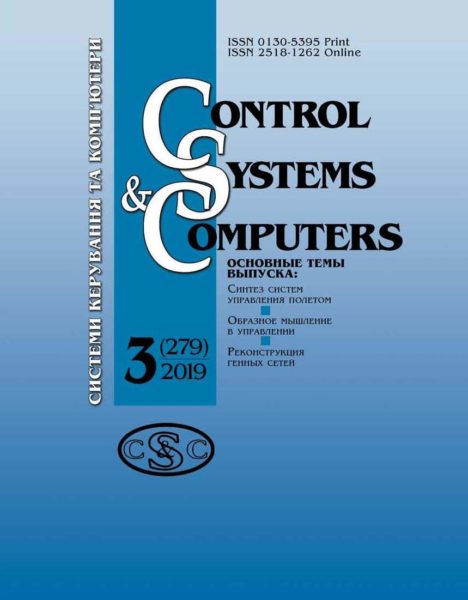Control Systems and Computers, N2, 2017, Article 6
DOI: https://doi.org/10.15407/usim.2017.02.074
Upr. sist. maš., 2017, Issue 2 (268), pp. 74-82.
UDC 65.011.56
Timashova Liana A., Doctor of Eng. Sciences, Head of the department, International Research and Training Center for Information Technologies and Systems NAS and MES of Ukraine, Glushkov ave., 40, Kyiv, 03187, Ukraine, E-mail: dep190@irtc.org.ua
About Problems of Creation and Development of the Virtual Systems
Introduction. Creation of the new forms of government by the enterprises in the form of the virtual and ability to control them is innovative process at least important, than development of new technical systems. Creation of the virtual enterprises will become one of uncommon ways of an output of the developed crisis of the industry of Ukraine.
Рurpose – to give the idea of problems of creation and development of the virtual enterprises differing in flexibility of management system and intellectual information technologies of its support in conditions of a dynamic external environment.
Results. The virtual enterprise is created as system artificially of the heterogeneous enterprises integrated in information space with the single system of control capable to flexibly change the configuration. Strategic advantage of such system is stability and survival in market economy, ability of participants to provide flexibility and integration of resources, an opportunity to quickly form the virtual teams and the virtual environment, to integrate knowledge of competent persons for purposeful activities.
Intellectual simulation of productions is understood as process of simulation of which the combination of methods of simulation modeling to methods and technologies of use of knowledge bases is characteristic. It is supposed that intellectuality includes ability to acquire, accumulate and use knowledge for the purpose of obtaining new production knowledge.
Conclusion. The new method of the organization and functioning of the enterprises of new generation – the virtual enterprises is offered. Their distinctive feature is ability to flexible reconfiguration depending on market demand for production. New tools in the form of intellectual simulation and intellectual technologies are used to development of the virtual enterprises.
Keywords: virtual systems, virtual enterprises, information technologies, intelligent control systems.
- Glushkov, V.M., 1974. Introduction to ACS. Kiev: Tekhnika, 20 p.
- Gritsenko, V.I., Timashova, L.A., 2001. “Information tools and technologies of virtual enterprises”. Problems of introduction of information technology in the economy and business: Sat. scientific works. Kiev, pp. 3–6.
- Timashova, L.A., Bondar, L.A., Leshchenko, V.A., 2005. “Information technology for a virtual enterprise partner search system”. Proceedings of the 12th International. conf. on automatic control, Avtomatika – 2005, Kharkov, 2005. T. 1. 235 p.
- Camarinha-Matos, L.M., Afsarmanesh, H., Rabelo, R., 2000. “Supporting agility in virtual enterprises. Proc. of PRO-VE 2000”. 2nd IFIP Working Conf. on Infrastructures for Virtual Enterprises, (Florianopolis, Brasil, 4–6 Dec. 2000). Kluwer Acad. Publ., pp. 89–104. ISBN 0-7923-7205-0.
- Camarinha-Matos, L.M., Afsarmanesh, H., Marik, V., 1998. Intelligent Systems for Manufacturing – Multi-agent systems and virtual organizations. Kluwver Acad. Publ., IFIP 130. ISBN 0-412-84670-5.
- Davidow, W., Malone, M., 1992. The virtual corporation: structuring and revitalizing the corporation for the 21st century. N.Y.: Harper Collins, 183 p.
- Davidov, W.H., Malone, M., 1993.” The Virtual Corporation”, W.H. Davidov, M.S. Malone. New York: Harper, 357 p.
- Timashova, L.A., 2004. “Organization of virtual enterprises”, L.A. Timashova, S.K. Ramazanov., L.A. Bondar et.al. Lugansk: Publishing House of the Ukrainian National University. V. Dahl, 2004. 368 p. ISBN 966-590-491-4.
Recieved 08.04.2017



